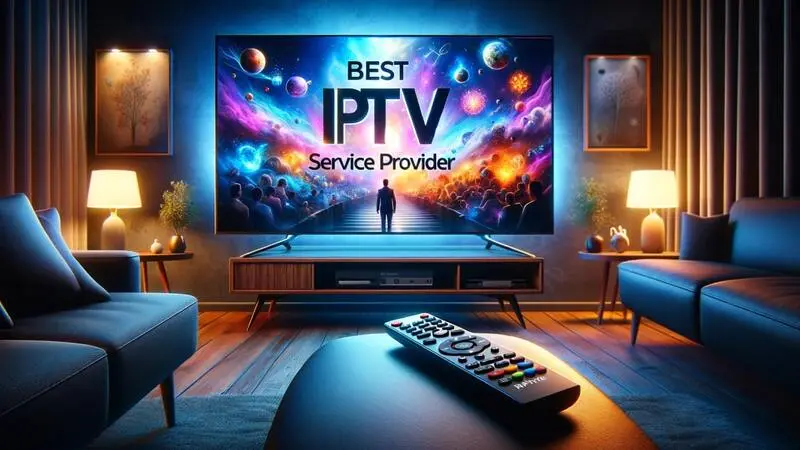In recent years, the way we consume television has undergone a significant transformation, with traditional cable and satellite subscriptions giving way to internet-based streaming services. Among these, IPTV (Internet Protocol Television) has emerged as a popular choice, offering viewers a wide range of content delivered over the Internet. In this article, we delve into the world of IPTV services like Peoples TV and will explore their features, benefits, and considerations for prospective users.
Understanding IPTV
IPTV is a technology that delivers television content over Internet protocol (IP) networks, allowing viewers to stream live TV channels, on-demand content, and video-on-demand (VOD) services over the Internet. Unlike traditional broadcasting methods, which rely on satellite or cable infrastructure, IPTV utilizes internet connections to transmit data packets, enabling greater flexibility and accessibility for users.
How Does IPTV Work?
IPTV operates by transmitting television signals over IP networks, such as broadband internet connections, Ethernet, or local area networks (LANs). Viewers access this content through dedicated set-top boxes, smart TVs, or multimedia devices equipped with IPTV software or applications. Content providers deliver streams to users via IP multicast or unicast protocols, allowing for real-time transmission of video, audio, and other multimedia content.
Features and Benefits
- Wide Range of Channels: IPTV services offer access to a vast array of live TV channels, including local, national, and international networks, as well as specialty channels and premium content.
- On-Demand Content: In addition to live TV, IPTV platforms typically offer on-demand libraries featuring movies, TV shows, documentaries, and other multimedia content, allowing viewers to watch at their convenience.
- Interactive Features: Many IPTV services include interactive features such as program guides, electronic program menus (EPGs), and DVR functionality, enabling users to schedule recordings, pause, rewind, and fast-forward live TV.
- Multi-Device Compatibility: IPTV services are compatible with a variety of devices, including smart TVs, streaming media players, smartphones, tablets, and computers, providing users with flexibility and convenience in accessing content across multiple screens.
- Cost-Effectiveness: Compared to traditional cable or satellite subscriptions, these services often offer more competitive pricing plans, with options for customizable channel packages and à la carte add-ons, allowing users to tailor their viewing experience to their preferences and budget.
Considerations for Users
- Internet Connection: Since IPTV relies on internet connectivity, users must have a stable and high-speed internet connection to ensure smooth and uninterrupted streaming. Broadband speeds of at least 10 Mbps are recommended for optimal viewing.
- Content Licensing and Copyright: Users should be aware of the legal implications of accessing this content, as unauthorized streaming of copyrighted material may infringe upon intellectual property rights and lead to legal consequences.
- Quality of Service: While these services offer convenience and flexibility, the quality of streaming can vary depending on factors such as network congestion, server reliability, and content delivery infrastructure. Users should research and choose reputable IPTV providers with a track record of delivering reliable service and high-quality content.
- Device Compatibility: Before subscribing to this service, users should ensure that their chosen devices are compatible with the platform, whether it be a smart TV, streaming media player, or mobile device. Compatibility issues can arise if devices lack the necessary software or hardware requirements to support IPTV streaming.
Popular IPTV Services
- Netflix: A leading provider of on-demand streaming media, offering a vast library of movies, TV shows, and original content accessible via subscription.
- Hulu + Live TV: A subscription-based service that combines live TV streaming with on-demand content from major networks, including ABC, NBC, CBS, and Fox.
- Sling TV: A customizable IPTV service offering live TV channels, on-demand content, and add-on packages featuring sports, news, and entertainment channels.
- YouTube TV: A subscription service providing access to live TV channels, on-demand content, and cloud DVR storage, with a focus on sports, news, and entertainment programming.
Concluding Words
IPTV services represent a convenient and cost-effective way to access live TV, on-demand content, and multimedia entertainment over the Internet. With features such as wide channel selection, on-demand libraries, interactive functionality, and multi-device compatibility, IPTV platforms offer viewers greater flexibility and control over their viewing experience. However, users should be mindful of considerations such as internet connectivity, content licensing, quality of service, and device compatibility when choosing an IPTV service provider. By understanding the features, benefits, and considerations of IPTV, users can make informed decisions and enjoy a seamless and satisfying viewing experience.
Stay informed with Pulse Life Magazine! Get the latest updates and insights. Ask questions and explore our detailed articles to stay fully informed.
